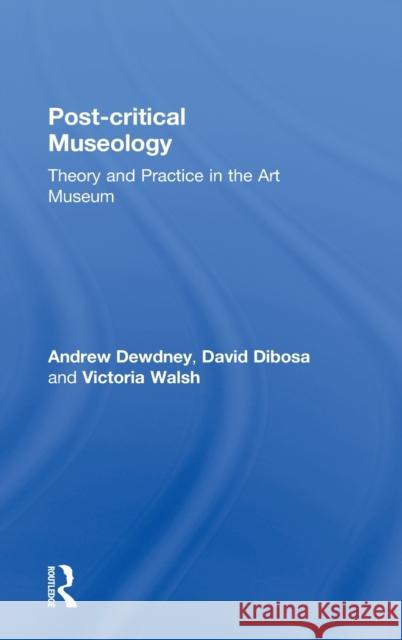Post Critical Museology: Theory and Practice in the Art Museum » książka
Post Critical Museology: Theory and Practice in the Art Museum
ISBN-13: 9780415606004 / Angielski / Twarda / 2012 / 288 str.
Post Critical Museology: Theory and Practice in the Art Museum
ISBN-13: 9780415606004 / Angielski / Twarda / 2012 / 288 str.
(netto: 721,53 VAT: 5%)
Najniższa cena z 30 dni: 654,86
ok. 16-18 dni roboczych.
Darmowa dostawa!
Post Critical Museology examines the current status of learning and knowledge practices in the art museum and investigates how to understand the challenges presented by the visual cultures of global migration and new media. The book locates the discussion of the future of the art museum in the realm of public participation and engagement with art and the museum. It provides a new analytical synthesis of the art museum through accounting for the agency of different communities of users and using theoretical approaches associated with science and technology studies. In the book's terms the art museum is continually made and remade through related networks and instead of an approach that starts with traditional hierarchies of cultural knowledge and value, it develops an analysis of the art museum in terms of an extended set of objects and performances and examines the points of relationship between them. In this way the book shows how the art museum in the first decade of the twenty-first century is no longer governed by the civic and civilizing mission of the nineteenth century, nor ruled by the logic of Modernist rationalism, but instead, can be seen as an institution seeking a new social role and identity and currently still struggling to understand and negotiate wider cultural signifying systems, government policy and market forces. Locating its critique in a constructive relationship to international progressive museological thinking and practice, the book calls for a new alignment in what it announces as post-critical museology. An alignment that is committed to rethinking what an art museum in the twenty-first century could be, as well as what knowledge and understanding its future practitioners might mobilize in a rapidly changing social and cultural context. The book aims to be essential reading in the growing field of museum studies. It will also be of professional interest to all those working in the cultural sphere, including museum professionals, policy makers and art managers.











